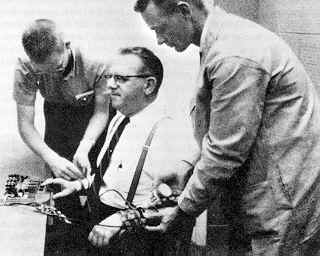Indeed, it is a healthy endeavor to discuss aspects of Piaget’s theory that have been challenged by subsequent psychologists using variations of his original experiments. Piaget is said to have created the foundations of the contemporary educational system that is held in place today. Piaget supported the idea that the child would be more beneficial in a rich learning environment rather than being subjected to direct tuition (Claudia Hammond, 2006). To discuss what aspects of his theory have been challenged, this essay is going to give an overview of Piaget’s theory of child development. In addition, three variations of Piaget’s famous experiments will be discussed. Subsequently this will show how aspects of Piaget’s original theory have been questioned. Continue reading

